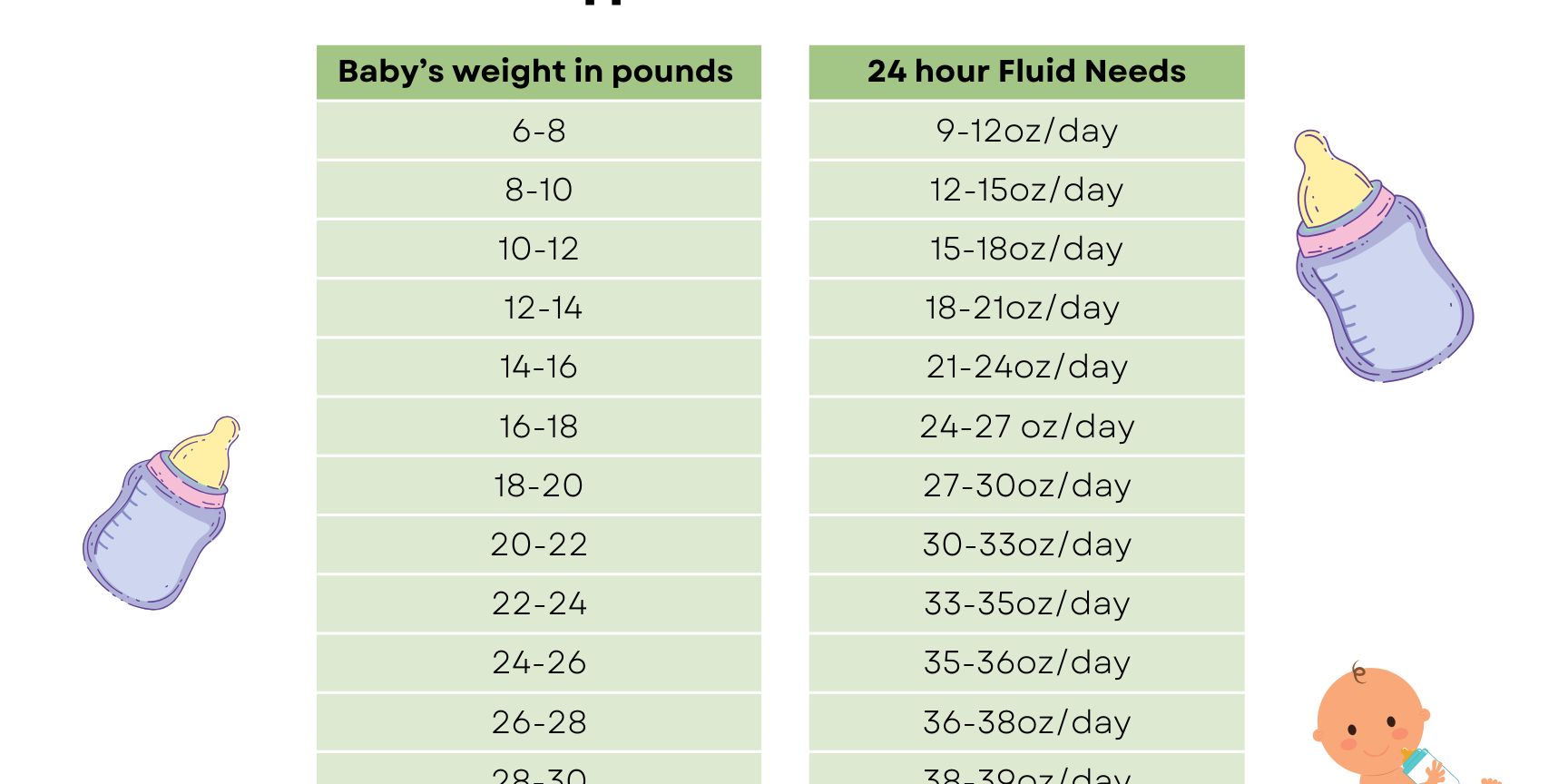As you embark on this incredible journey, one of the big questions you might have is: “How much should my baby be eating?” Well, fear not! We’re here to guide you through it with some fun and easy-to-digest (pun intended) information.
0-3 Months: The Newborn Phase
Welcome to the world of feeding on demand! Your baby will let you know when they’re hungry with adorable little cues like rooting (turning their head towards you when you stroke their cheek) or sucking on their fists. At this stage, babies typically eat about 8-12 times a day, which translates to about every 2-3 hours. Each feeding session can vary, lasting anywhere from 20 to 40 minutes.
Pro Tip: Keep an eye out for signs that your baby is full. They’ll usually slow down, turn away from the bottle or breast, or fall asleep.
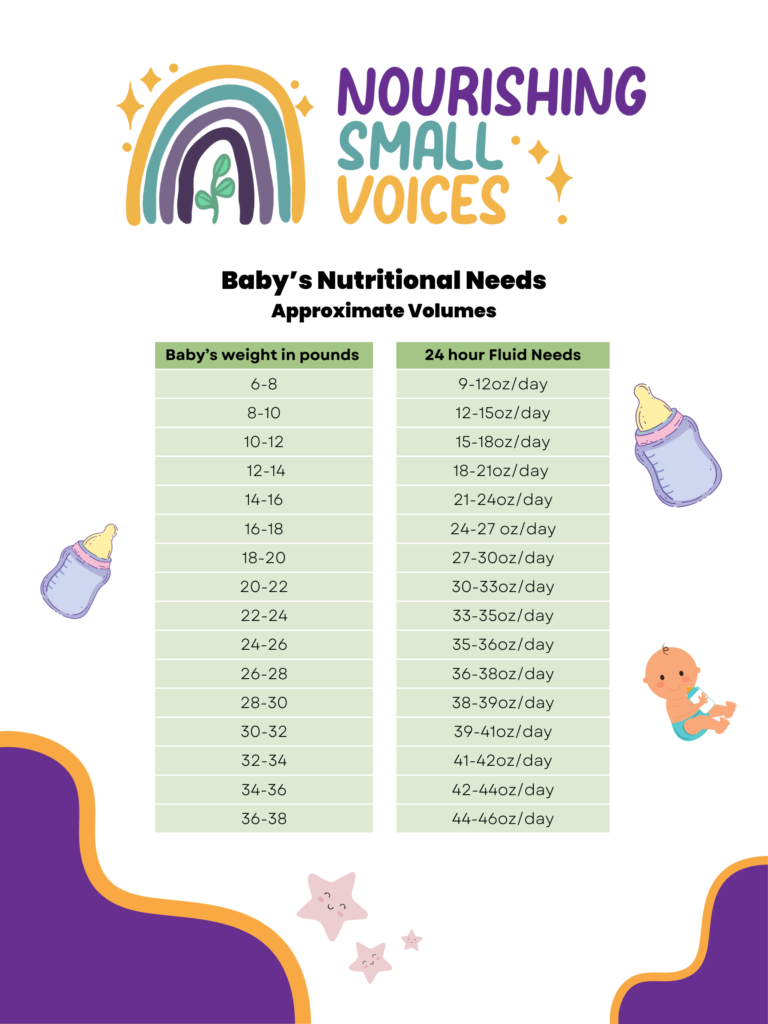
3-6 Months: Finding a Rhythm
As your baby grows, their feeding schedule may become a bit more predictable. You might notice they start spacing out their feedings to every 3-4 hours, and they may even start sleeping longer stretches at night (hooray!). At this age, babies are still primarily drinking breast milk or formula, with an average of 24-32 ounces a day.
Fun Fact: Some babies go through growth spurts around 3 months and might suddenly want to eat more frequently. Don’t worry, it’s totally normal!
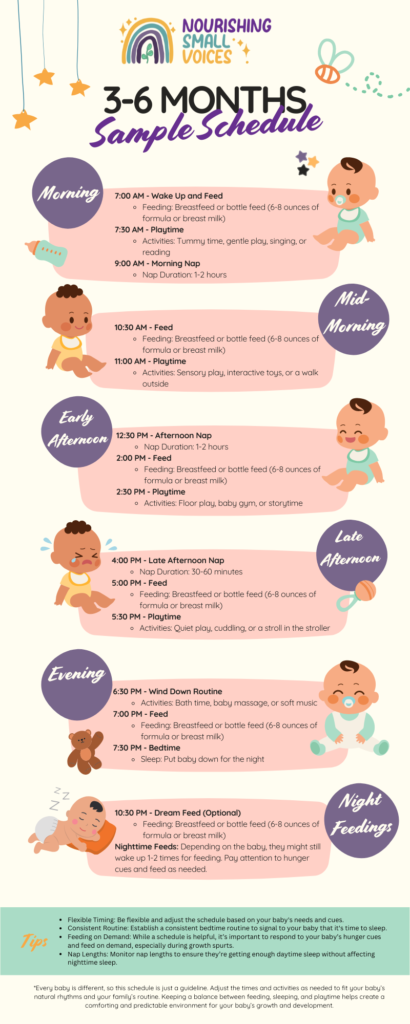
6-9 Months: Introducing Solids
Get ready for a whole new adventure: solid foods! Around 6 months, most babies are ready to start exploring new tastes and textures. Begin with simple, single-ingredient foods like pureed fruits and veggies. Start with a small amount—just a teaspoon or two—and gradually increase as your baby gets the hang of it.
Pro Tip: Keep the focus on breast milk or formula as the main source of nutrition. Solids are more about fun and exploration at this stage.
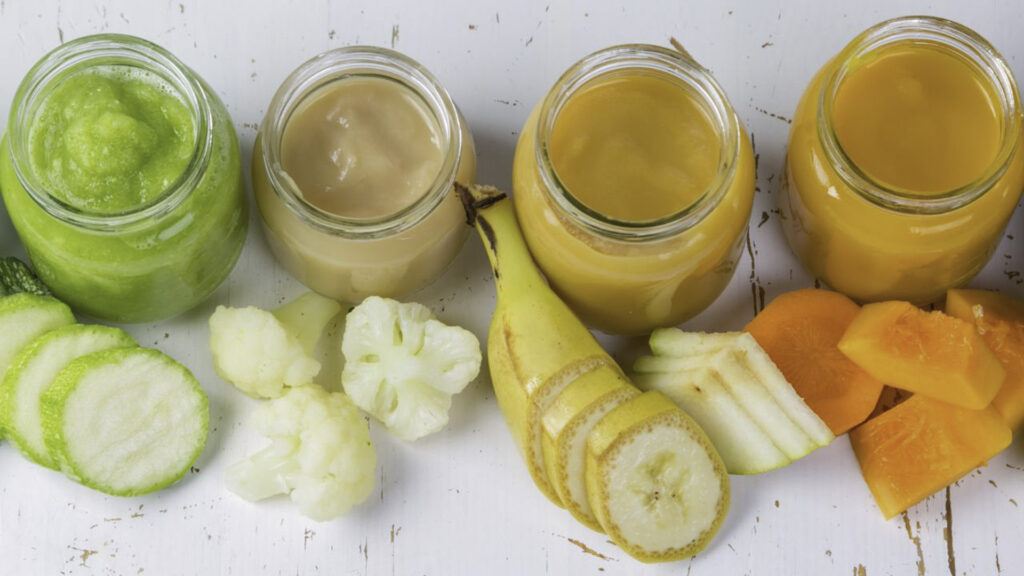
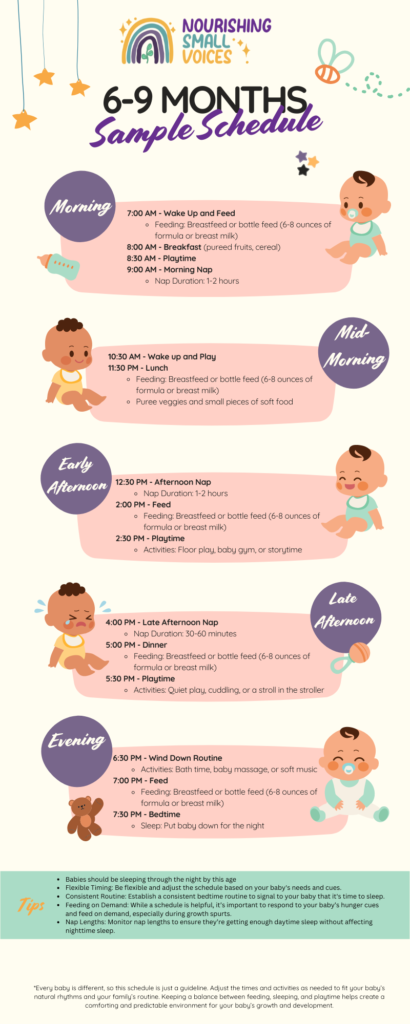
9-12 Months: Mini Muncher
By now, your baby might be enjoying a variety of pureed and mashed foods, along with their regular milk feeds. They’ll likely be having three meals a day, plus some snacks. Remember, it’s not just about quantity; it’s also about quality. Offer a mix of fruits, veggies, grains, and proteins to keep things balanced.
Fun Fact: Babies love to mimic! Let them watch you eat healthy foods—they might just want to try what you’re having.
Trust Your Instincts and Your Baby
Every baby is unique, and their appetites can vary from day to day. Trust your instincts, and let your baby guide you. If they’re growing well, having regular wet diapers, and seem happy, you’re doing an amazing job.
Final Thought
Remember, feeding your baby is more than just about nutrition; it’s a time for bonding and creating wonderful memories. Enjoy these special moments and have fun with it!
Happy feeding, super parents! You’ve got this! 💪👶🍼

